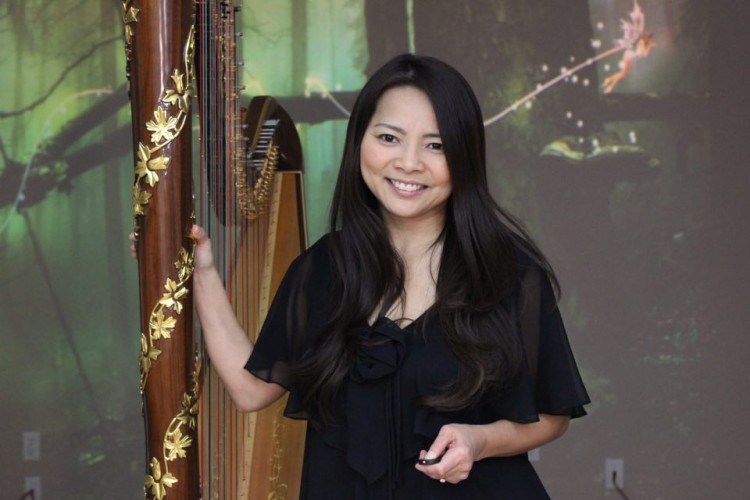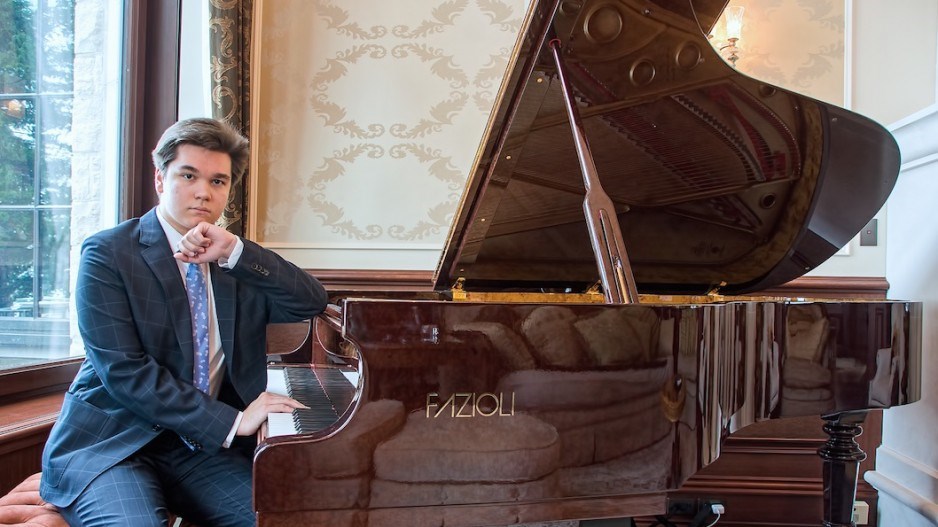Part of BIV’s What big money buys series: Wealthy Vancouverites are lavishing untold amounts of money on big-ticket indulgences, driving a bonanza for the region’s dealers in luxury furnishings, vehicles, yachts and other top-tier toys.
In a strictly monetary sense, owning a luxury musical instrument is a lot different from owning stocks, bonds or other intangible assets that can’t be touched, played or listened to.
While many who buy high-end musical instruments do so for the joy of playing them, and not for any increase in value that may or may not take place, the items’ physical nature can be troublesome from an investment standpoint.
The more expensive the instrument, the more risky it can be to play. Even slight damage to a Stradivarius violin could knock a substantial sum off selling prices that can be upwards of $21 million.
When the musical instrument derives much of its value from having been previously owned by a famous musician – such as John Lennon’s Steinway piano, which George Michael bought in 2000 for about $3 million, or Eric Clapton’s “Blackie” Stratocaster guitar, which sold at auction for about $1.25 million in 2004 – the item is often loaned to a museum or otherwise protected and on display in a private collection.
While that kind of reverence might be expected for items that carry a distinguished provenance, it can also sometimes be lavished on instruments picked up by wealthy buyers to complete the look of a home.
“I sold one harp to someone who just wanted to display it in their home, and it made me sad, a little bit,” said Aoyama Harp of Canada Ltd. principal Miya Otake, who sells harps valued at $62,000, plus tax, and has for years been the owner of one.
But for musicians, the value of a top-tier instument is a matter that goes far beyond the number of zeroes in its price tag.
“What is really special is when you have a connection with the instrument,” Otake told Business in Vancouver.

(Image: Harpist Miya Otake stands with a harp that sells for $62,000 plus tax | submitted)
Otake, who has played the harp since she was seven years old, has toured as a performer and played at venues such as Carnegie Hall. Her $62,000 harp has 47 strings and three pedals, which each change the pitch of the strings. Ornate flowers are hand-carved into Canadian-sourced spruce, maple and walnut at Japan’s Aoyama Harp Co. Gold paint, which Otake said contains some real gold, is used to add colour and lend elegance.
“People say that you cannot make a living off music but I am living proof that you can,” said Otake, who graduated from London’s Royal Academy of Music in the late 1990s.
“I teach. I perform. I sell the instruments. I do everything to do with the harp. That’s my passion.”
Otake teaches at several Metro Vancouver music schools and also gives private lessons. She has been hired to play her harp during the births of children and for people in hospice settings at the end of their lives.
Others in Metro Vancouver who have expensive musical instruments share Otake’s passion for music.
Pianist Tristan Teo, for example, said he is grateful for many musical opportunities that he has so far enjoyed.
Teo, 21, practises on two Fazioli pianos – valued at about $200,000 each – that his parents bought for him.
He also plans to become, in September, one of the youngest people ever to start work on a doctorate at the prestigious Juilliard School in New York, having already earned master’s and undergraduate degrees at the school.
His New York apartment is a five-minute walk from the school on the Upper West Side of Manhattan. While other students will have to book time slots to use the school’s pianos, Teo will be able to stroll home to use the one at his own pad.
“I’ve always been struck by how perfect Fazioli pianos are,” he told BIV. “Even though each Fazioli is unique, each one I’ve played on responds so well to the pianist’s touch. They sound amazing in both small rooms and concert halls. No matter what size piano you get, it sounds extraordinary.”
He considers Fazioli pianos to be the equivalent of Ferrari cars, in comparison to other high-end piano brands that he views to be more like budget-oriented, yet reliable, Fiat vehicles.
“Each Fazioli is so exquisitely made,” he said. “Fazioli only makes around 100 pianos a year, and each one is handmade. That compares with some other manufacturers that make thousands of pianos a year.”
The care, attention and love put into each piano makes the instruments incomparable, he said, adding that the high price tags are worth it.
Earlier this year, his parents bought a second Fazioli piano so he can practise while living with his family in Richmond for the summer.
“A piano is a lifetime investment,” he said. “If you take care of it, it can last you a lifetime, so why not get the best of the best? That’s my reason for forking out the money to get another one.”
Showcase Pianos principal Manuel Bernaschek agreed that Fazioli pianos are the best ones on the market. He said his Vancouver company, which has stores on West Broadway and at Richmond’s Aberdeen Centre, has sold more than 100 Faziolis since it launched in 2007.
Some of those sales have been to developers. Westbank Corp. purchased a Fazioli to put in the lobby of the company’s Telus Garden development, while several others are set to be in suites at the company’s under-construction Vancouver House. •




